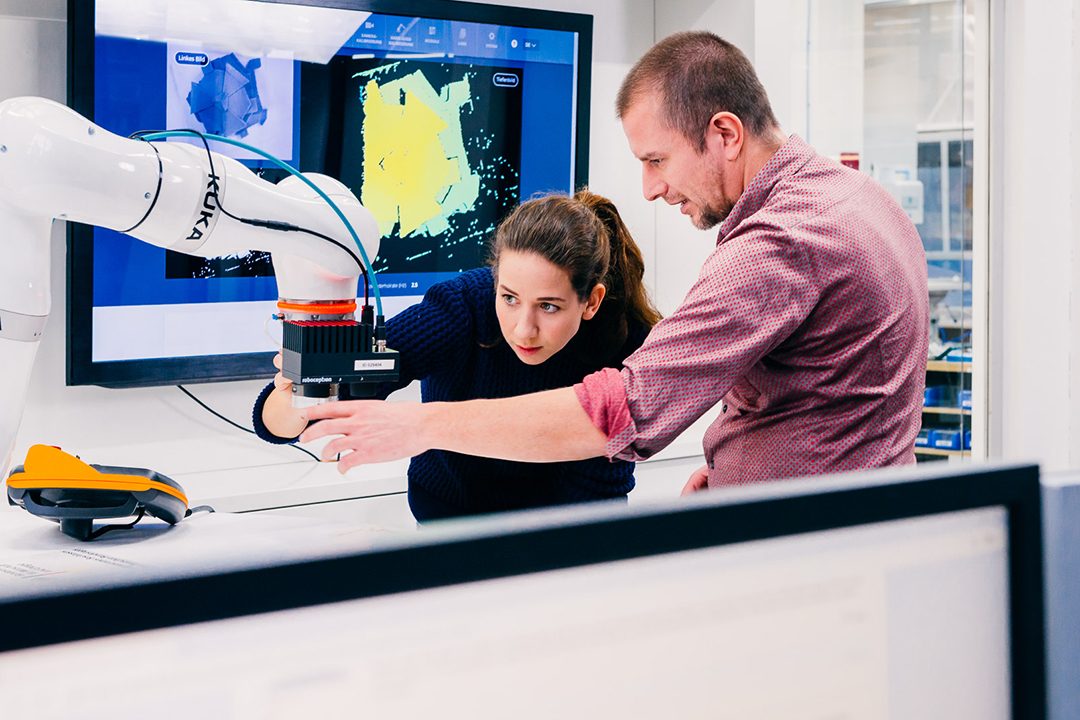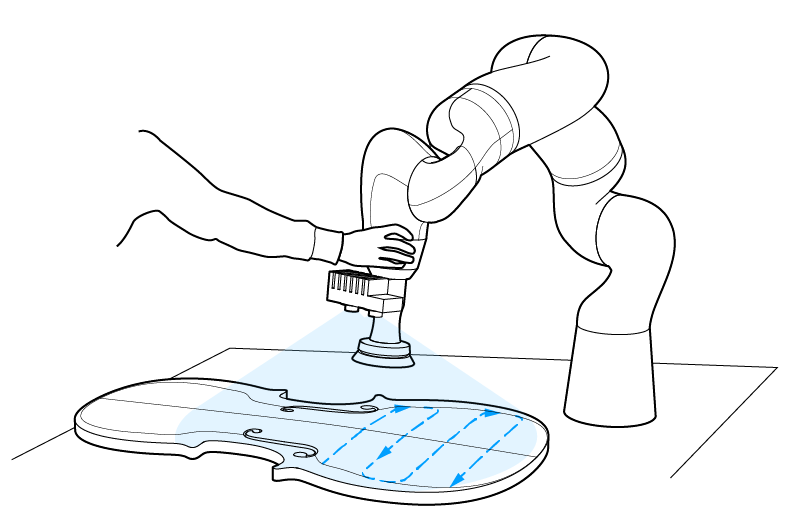
LEROSH | Training robots in skilled crafts
Simply work with robots!
With the LEROSH project, we are exploring how to enable craftspeople to seamlessly integrate robots in their daily business by teaching them fine craft skills, such as sanding. The project is part of the initiative “Handcraft 4.0” founded by the German Federal Ministry of Education and Research (BMBF). Our research network includes the German Aerospace Center (DLR) and the Fraunhofer Institute (IWU), software interaction experts from Interactive-Scape, and small to medium size craft enterprises. Together, our goal is to create an end-to-end system that improves the productivity, product quality, and comfort of craft work — without requiring to be a robotic expert.
The challenge
Craft is first and foremost unique. Every wokpiece requires fine adaptations depending on the raw material and variation. Sanding is a particularly delicate task where wood grain affects the sanding paths and the nature of the necessary tools. Humans visually and haptically assess the necessary pressure, sanding direction, and grit, and perform the sanding process almost intuitively.
Yet, on the other hand…
Hardly any other craft process is as unpopular as sanding, it causes dust and dirt and costs many hours of labor and apprenticeship. Typical dirty, dull, and dangerous job that we usually like to outsource to robots.
However, sanding is a particularly challenging task to automate. It requires gathering and understanding rich sensory data, generating natural sanding paths, and continuously monitoring and assessing the surface quality. Furthermore, frequent turn taking between the craftspeople and the robot should be enabled in a seamless fashion at all times. We aim to address all these challenges with our exploratory system LEROSH.
Our goal
If trainee robots were as good at sanding as humans, we could minimize the health burden on employees, increase the efficiency and attractiveness of the skilled trades, and effectively counter the coming shortage of skilled workers.
We’ll keep you up to date with our progress via our newsletter (in German for now), or if you have any questions you can always contact us directly via e-mail.
ROBOTICS IN THE CRAFT
Tools for the future?
For a perfect manual workflow, robots and handling must always be designed to suit the respective task. To ensure that components can also be individually manufactured with the necessary efficiency, LEROSH relies on increased sensor technology and machine learning and thus on optimization and flexibility in the sanding application – up to ‘ad-hoc automation’ of recurring, similar and even individual tasks. For the best possible intuitive usability (‘no-code robotics’), LEROSH is equally focused on developing new UI/UX elements that empower users to independently control and improve their processes.
